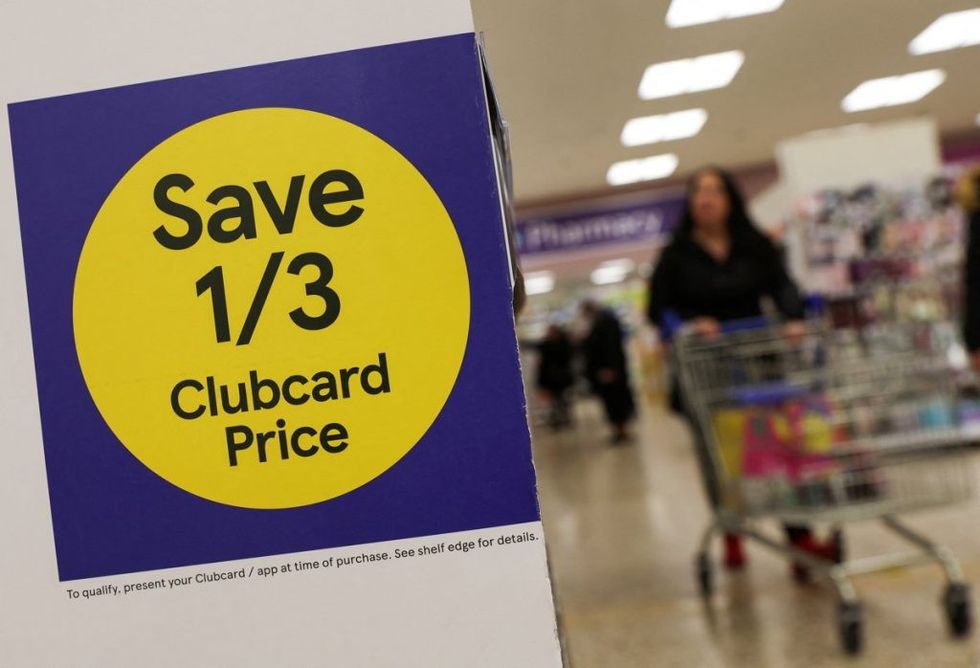Britain's big supermarkets say they have never been more competitive on price, yet their customers are still flocking to German-owned discount stores Aldi and Lidl.
And the discounters' supermarket sweep still has a long way to run, industry executives say, with Aldi UK CEO Giles Hurley pledging Britain's lowest prices "no matter what".
That is forcing Britain's major players - market leader Tesco, Sainsbury's, Asda and Morrisons - to cut more costs so they can keep a lid on prices and cling on to shoppers who have been hit by a cost-of-living crisis.
"Over the Christmas period alone shoppers switched £58 million (of purchases) to Lidl from Tesco and Sainsbury's," Lidl GB chief executive Ryan McDonnell told Reuters.
"That's not just from customers visiting new stores."
The discounters proved the big winners over the festive period, luring shoppers from all the traditional groups, with Aldi and Lidl's December sales rising 26 per cent and 25 per cent respectively.
The German duo have already grabbed more than 16 per cent of the British market between them but analysts, academics and grocery executives expect that to double within a decade as they spend hundreds of millions of pounds to expand.
Aldi is targeting 1,200 UK stores by 2025 from its current 990, and Lidl is aiming for 1,100, from more than 950.
Britain's incumbents are struggling to compete in part due to the scale of the two relative newcomers, which between them are present in more than 30 countries including the US, where Aldi in particular is thriving.
The discounters' size guarantees better terms when negotiating supplier deals, while they are also able to take a longer-term view on profit because they are privately-owned and do not have to worry about shareholder returns or stock prices.
Discounters hold more than a third of the supermarket sector in countries such as Germany, Poland, Denmark and Norway and the British shopping landscape is likely to follow suit.
"The UK will model to what many of the European countries have," Leigh Sparks, professor of retail studies at the University of Stirling in Scotland, told Reuters.
Aldi UK, owned by Aldi Sud, is now Britain's fourth largest grocer with a market share of 9.2 per cent, according to researcher Kantar, while Lidl, part of the Schwarz Group, is sixth biggest with 7.1 per cent.
Price Pressures
Tesco and Sainsbury's have already responded by stripping out in-store meat, fish and deli counters and replacing large numbers of check-out staff with various forms of automation.
This reflects lessons learned during the 2008 financial crisis when Aldi and Lidl secured a foothold in Britain by doing a much better job of holding prices down on their range of 2,000 mostly own-brand products, versus 30,000-40,000 at the big supermarkets.
With Britain teetering on the brink of recession, and food price inflation above 15 per cent, the traditional players are this time putting up a fight. While the price gap with the discounters remains material - at 14-18 per cent for a 45-item shopping basket according to Which? - it has narrowed in recent years.
Tesco and Sainsbury's are now matching Aldi prices on hundreds of key items and using customer loyalty schemes, while they have accepted a profit hit to keep prices down.

"We're in the strongest value position we have been in for many, many years," Tesco chief executive Ken Murphy said last month, while Sainsbury's chief executive Simon Roberts said it was raising prices by less than all its key competitors.
Some investors say the worst of the pain is behind the traditional players and that dividend yields of nearly 5 per cent at Tesco and Sainsbury's make them solid investments.
"They're paying attractive dividends, they're much simpler businesses than they were and they're very cash generative, that is the attraction," said a top 50 shareholder in both.
Re-basing?
Sector executives, speaking on condition of anonymity, said the further rise of Aldi and Lidl is inexorable.
"The only question is who cedes the share and at what point does that become problematic for one or some of the players," one sector veteran told Reuters.
"At some point, there will end up being some form of industry re-basing or consolidation because the amount of space being put down is greater than the increase in demand."
Costcutter owner Bestway has built a 4.5 per cent stake in Sainsbury's but says it is not planning a takeover. Qatar's sovereign wealth fund owns 14.3 per cent.
While in 2019, Britain's competition authorities blocked Sainsbury's proposed takeover of Asda, the landscape is now different, with Aldi ahead of Morrisons by Kantar's measure.
"Nobody's going to take Tesco out but at some point somebody might take Sainsbury's out," the sector veteran said.

